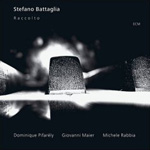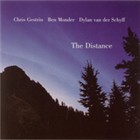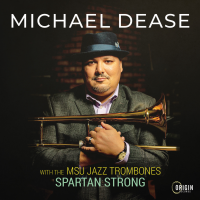Home » Jazz Articles » Profile » Joe Wilder: A True Living Legend
Joe Wilder: A True Living Legend
He says in fact that it's the first time he's ever led a group in New York City under his own name. A long-time Harlem resident, Wilder is no stranger to playing in town however. "I used to jam at Minton's in the '50s. And there was a club on 110th and 8th Avenue, I think called The Flame where Big Nick Nicholas led a group. Everyone loved him. Hot Lips Page and other great musicians from across the country would come in and jam.
Wilder was born in Colwyn, Pennsylvania on February 22nd, 1922 into a musical family including his father Curtis, a bassist and bandleader in Philadelphia. Curtis Jr., Wilder's older brother, also played bass. On July 1st, 2004, as the guest of the Jazz Museum in Harlem's Harlem Speaks series, Wilder explained that although he was initially attracted to the trombone, his father bought a cornet for him and began to take him to some of his dance jobs. Wilder recalled overhearing the orchestra's first trumpeter, Fred Beckett, grumble, "Oh my God, here comes Wilder with that damn kid again!
His fast progress led to a regular feature on a weekly children's radio program in Philadelphia called the Parisian Tailors' Colored Kiddies of the Air. The youngsters were backed by bands appearing at the Lincoln Theater, including Duke Ellington and Cab Calloway. "I would be playing the first trumpet part of some popular tune—just reading it note for note. And these bands would be playing backgrounds for us! Wilder had an early encounter with Louis Armstrong on one of these occasions. "He was awfully nice to me. He gave me a pass and said, 'You come and see Louis every day.' Pops remembered the young trumpeter from the broadcast in later years: "He always encouraged me and I think he was proud of the fact that I made it in the studios, Wilder recalls.
He studied at the Mastbaum School of Music in Philadelphia. Early on he was drawn to classical music but soon realized that a career in the symphony was not a realistic goal for a black musician coming of age in the late '30s. So Wilder began playing in big bands, leaving home in 1941 at 19 to join Les Hite's band.
"I remember my mother standing there at the side of the bus all loaded with strangers and saying: 'Now, you behave yourself and don't you do anything to disgrace the family!' She had nothing to worry about because Wilder is known as one of the most dignified gentleman in the business. In fact, when he was with the Lionel Hampton band in the early '40s, fellow bandmembers would offer him ten bucks if he would simply say one profane word. He politely refused.
Wilder was one of the first thousand blacks to serve in the Marines during World War II, working first in Special Weapons then gaining an assignment to the headquarters band for which he became the Assistant Bandmaster. He played in the orchestras of Jimmie Lunceford, Herbie Fields, Sam Donahue, Lucky Millinder, Dizzy Gillespie, and Noble Sissle during the '40s to the early '50's.
His last big band gig was with the Count Basie Orchestra in 1953, after which his career remained close to home—he's a devoted husband, father of three daughters and a grandfather too. He started playing in hit productions such as Guys and Dolls and Cole Porter's Silk Stockings, the touring company of which he joined in late 1953. "They went first to Mr. Porter and asked if he had any objection to a black musician playing first trumpet, Joe recalls. "All he asked was, 'Can he play my music?' When they told him I could, he answered, 'Well, that's all that matters.'
He earned a secure place in the studio scene as a 'first call' musician and served on staff at ABC from 1957 to 1974. "A lot of times you just went in and were completely surprised, he recalled. "We took pride in being able to sight-read anything that was put before us and in playing any type of music as well as the people who specialized in that particular style.
Ed Berger, staffer at the Institute of Jazz Studies at Rutgers University currently working on a biography of Wilder, says that "in addition to his busy studio schedule, Joe continued to build a reputation as a highly original jazz soloist through his own albums for Savoy and Columbia and countless sessions as a sideman with Hank Jones, Gil Evans, Tadd Dameron, Michel Legrand, Benny Goodman and many others. He also became a favorite of vocalists, such as Billie Holiday, Lena Horne, Carmen McRae, Harry Belafonte, Johnny Mathis, Tony Bennett, Helen Humes and Johnny Hartman, who found their own work to be greatly enhanced by Wilder's sympathetic obligati.
He went back to school in the '60s, earning a bachelor's degree at the Manhattan School of Music. Wilder played on several occasions with the New York Philharmonic and in 1968 he became principal trumpet for the Symphony of the New World, which he characterized as "the first fully integrated symphony orchestra in the United States. He also recorded his own album of classical trumpet pieces, fulfilling his original dream.
He's the only surviving member of the Count Basie All-Star Orchestra seen in the classic 1959 film The Sound of Jazz, soloing on the tune "Fast and Happy Blues . Then as now, Joe Wilder's trumpet and flugelhorn playing are as elegant and sophisticated as the man, his approach unique and soulful like the veritable sound of jazz. His rare appearance at the Vanguard is not to be missed.
Tags
Joe Wilder
Profiles
Greg Thomas
United States
New York
New York City
Roy Eldridge
Village Vanguard
Philadelphia
duke ellington
Cab Calloway
Jimmie Lunceford
Dizzy Gillespie
Hank Jones
Gil Evans
Tadd Dameron
Michel Legrand
Benny Goodman
Billie Holiday
Lena Horne
Carmen McRae
Tony Bennett
Johnny Hartman
PREVIOUS / NEXT
Support All About Jazz
 All About Jazz has been a pillar of jazz since 1995, championing it as an art form and, more importantly, supporting the musicians who make it. Our enduring commitment has made "AAJ" one of the most culturally important websites of its kind, read by hundreds of thousands of fans, musicians and industry figures every month.
All About Jazz has been a pillar of jazz since 1995, championing it as an art form and, more importantly, supporting the musicians who make it. Our enduring commitment has made "AAJ" one of the most culturally important websites of its kind, read by hundreds of thousands of fans, musicians and industry figures every month.




























